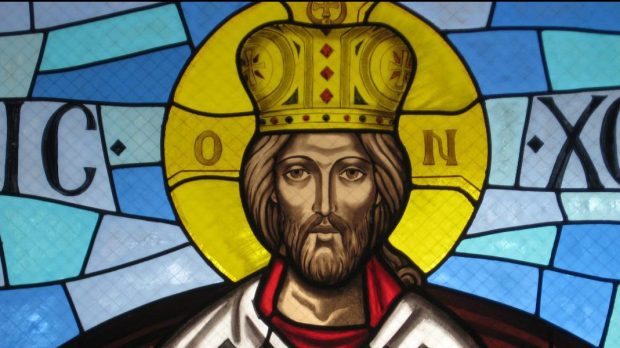Lenten Campaign 2025
This content is free of charge, as are all our articles.
Support us with a donation that is tax-deductible and enable us to continue to reach millions of readers.
In reading for the feast of Christ the King, and in preparation for Advent, I am every year compelled to re-read and contemplate the thoughts of our good Pope Benedict in Co-workers of the Truth:
The Son of David, the King, is Jesus; in him God entered humanity and espoused it to himself. If we look closely, we shall discover that this is, in fact, the usual form of the divine activity in relation to mankind. God does not have a fixed plan that he must carry out; on the contrary, he has many different ways of finding man, and even of turning his wrong ways in to right ways.
For some of us who work in new media –I almost wrote who live and work” there — and who have pondered the negative effects of a life too plugged-in, there is some consolation to be found in that. The message reminds us that there are things “seen and unseen” constantly at work.
In the midst of what seems like chaos, God is always quietly working his mysterious wonders. Post-Annunciation, Mary’s wondering must have included an element of chaos — would she be stoned; would Joseph put her aside? — even as the King of Kings was being knit together in the quiescence of her womb, God working, all unseen.
For the apostles, and again for Mary, the death of Jesus must have seemed to them a most chaotic time — betrayals, the loss of public trust, the brutal and unjust death of the master — and yet, again, the will of God was quietly taking effect in the silence of the tomb, and waiting to be revealed.
These events bear out Benedict’s observation that God turns “wrong ways into right,” and we need to keep that in mind as we try to enter into the spirit of Advent and face our deepest longings during tumultuously passing days.
And we can apply that same sense of consolation and hope to the Internet, too. One reads David J. Linden’s The Compass of Pleasure: How Our Brains Make Fatty Foods, Orgasm, Exercise, Marijuana, Generosity, Vodka, Learning, and Gambling Feel So Good, and wonders if we are pleasuring ourselves to death with our nonstop use of social media, and whether the endless headline-surfing and combox swaggering is negatively impacting society and our souls.
Instinctively, we might answer “yes.”
Each day brings another round of stories suggesting that our cities are aspiring to recreate The Lord of the Flies , and it becomes easier to blame the internet and social media for part of it. The worldwide web is an efficient mechanism for fomenting chaos; it speeds along information that is often incomplete to begin with, and quickly disseminates it into echo chambers that mischaracterize, politicize, and further filter it to suit. Social media then organizes the chaos, allowing “flash mobs” to gather in minutes and “occupations” to install themselves overnight.
In the face of those realities, one may wonder whether the ‘net negatives outweigh the positive. When someone suggests that social media is “the devil’s own tool,” one may wholly disagree, while completely understanding why he would think so.
This is especially true, I think, for religious writers as we watch comboxes further devolving, every day, from civil discussion into patterns of tribal denouncement, and who wonder if there is any real point left to what we do. Often, precisely when a writer is considering hanging up the keyboard, there comes an email from a stranger relating that a thought casually posted to Twitter somehow wound its way, through countless “retweet” multipliers, into their timeline, where it managed to penetrate the correspondent’s understanding — to a startling and life-changing degree — and inspired them to go to confession and return to the Mass.
Having been on the receiving end of such emails, it is staggering to realize how efficiently the Holy Spirit uses even our toss-offs and our dross to effect the movement of grace. It is humbling, too, because it reinforces to a certainty that we do nothing of ourselves, and can only hope to become a sort of conduit for God’s will in the world –whether it is the virtual one or the real one.
When the only reality is Christ, perhaps they are the same — outward distractions and fleeting moments whirled into chaos and doubt by the prince of the world, meant to distance us from the work of the self-immolating King and Bridegroom, who loves us, and works without ceasing, to draw us nearer, and ever nearer.
He is not nearly as hidden as we think. And we mustn’t be afraid to let him love us; we mustn’t be afraid to trust that beneath everything, the King has many different ways of finding us. He will not let go.
Viva Cristo Rey! Long Live Christ the King! Viva Cristo Rey!
Read more: Why Advent? The Bridegroom is coming, and this is forever.

